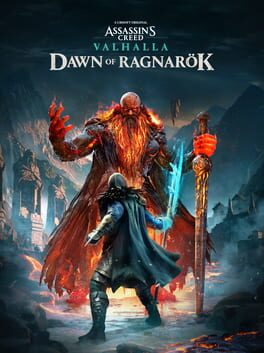The Asgard and Jotunheim Saga in the original Valhalla was interesting in how it interpreted the existing Norse Mythology while weaving the series' Isu culture. How Eivor's 9th century Norse perspective changes it while still giving off enough hints to those who have been following the overarching story for a long time was truly a rewarding narrative experience.
Dawn of Ragnarok is instead just focusing on the myth itself; we can infer certain things like how Muspels are very much likely the Egyptian Isu from the Origins, and "relic" could be something that may have triggered the Solar Flair disaster during the Isu era, etc. But the game is never really about delving deeper into the grander Isu mythology, which I believe is a painfully missed opportunity. It still retains the similar qualities in terms of re-interpreting the Norse mythology, while Havi himself got much more characterization.
Gameplay-wise, it does not continue the more open assassination level design introduced in the Siege of Paris and instead is more or less an expansion of the main game. The big added gimmick here is the Hugr-Rip, a device that lets you rip power from fallen enemies which you can use later. There are 5 powers, all with varying degrees of usefulness, but they are really never the focus of the gameplay. They also have time limit to each use, which makes it difficult to really experiment in the systemic gameplay, meaning that their uses become very limited--to the point you don't really need them.
The new area, Svartalfheim is beautiful, but also very much like England--lots of green, marshes, rivers and snow. It is bigger and the views from higher vantage points are magnificent, but the ground-level experience is a step-down from the main game's Asgard and Jotunheim.
Dawn of Ragnarok is instead just focusing on the myth itself; we can infer certain things like how Muspels are very much likely the Egyptian Isu from the Origins, and "relic" could be something that may have triggered the Solar Flair disaster during the Isu era, etc. But the game is never really about delving deeper into the grander Isu mythology, which I believe is a painfully missed opportunity. It still retains the similar qualities in terms of re-interpreting the Norse mythology, while Havi himself got much more characterization.
Gameplay-wise, it does not continue the more open assassination level design introduced in the Siege of Paris and instead is more or less an expansion of the main game. The big added gimmick here is the Hugr-Rip, a device that lets you rip power from fallen enemies which you can use later. There are 5 powers, all with varying degrees of usefulness, but they are really never the focus of the gameplay. They also have time limit to each use, which makes it difficult to really experiment in the systemic gameplay, meaning that their uses become very limited--to the point you don't really need them.
The new area, Svartalfheim is beautiful, but also very much like England--lots of green, marshes, rivers and snow. It is bigger and the views from higher vantage points are magnificent, but the ground-level experience is a step-down from the main game's Asgard and Jotunheim.
